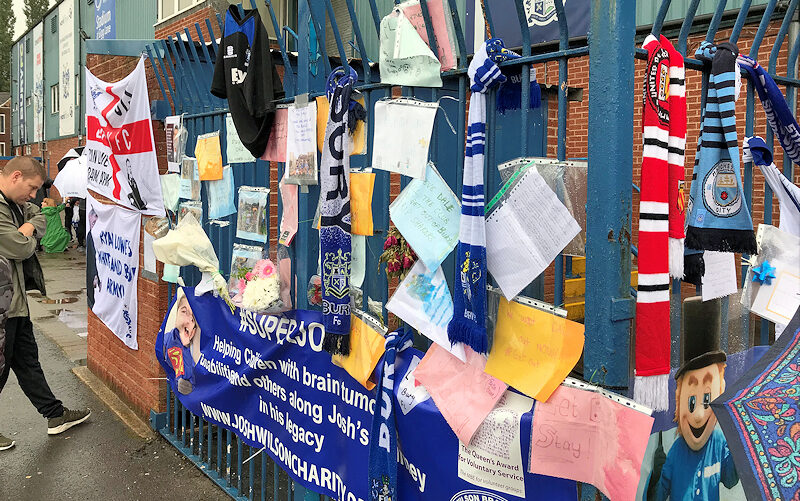The demise of Bury FC has been sad to see, but there is hope for them. Financial problems and winding-up orders have publicly plagued the club for the past couple of seasons, but it has emerged that years of mismanagement behind the scenes has been the root of their problems, culminating in their expulsion from the English Football League (EFL).
On the 27 August 2019, the EFL announced Bury FC’s membership of the league had been withdrawn, making them the first club to be expelled from the Football League since Maidstone United in 1992.
They are likely to have to start at the bottom of the football league pyramid and work their way back up, but it can be done, look at the rise of AFC Wimbledon, and now Darlington are on the verge of making it back too.
Darlington FC aiming for a return to the EFL
Darlington FC was founded in 1883 and played its matches at Feethams, first being admitted to the Football League when the Third Division North was formed in 1921. Having played most of their football in the lowest tier of the football league, they moved to the all-seater, 25,000-capacity Darlington Arena in 2003.
The cost of the stadium was a major factor in driving the club into administration in 2012 and they were expelled from the Football Association, then wound up in the High Court having failed to agree a creditor voluntary agreement (CVA).
A new club was immediately formed, Darlington 1883, and they were placed in the Northern League Division One, the ninth tier of English football. However, they went on to win three promotions in four seasons.
Promotions and success
Darlington 1883 were crowned Northern League Division One champions in 2012–13 with a club-record haul of 122 points, scoring 145 goals in the process.
In the 2013–14 season they were Northern League Division One North runners-up, but lost in a play-off semi-final against Ramsbottom United. The following season, they again finished second, but this time won the play-off final 2–0 against Bamber Bridge, earning promotion to the Northern Premier Division.
Darlington 1883 clinched their second successive promotion and the league title the following season to move into the National League North, and in April 2017, the FA approved the club’s request to change its name back to the traditional Darlington F.C. for the 2017–18 season.
They remain in the National League North, the sixth tier of English football, and have their sights set on getting into the National League, just one division below a glorious return to the football league.
Favourites for another promotion
Having gone into this season as favourites for promotion from the National League North, Darlington have made a rocky start to the campaign, losing four of their opening nine games and winning just three times. They have drifted to odds of 27/1 to win the title. Manager Alun Armstrong knows he now has a tough task ahead of him to get Darlington into the top seven to achieve a play-off place at least, but if they don’t do it this time, they are sure to come strong in the following seasons.
Bury can take heart
Bury can look at Darlington as an example of hope in their current time of despair. The local community will back Bury and stick with them as they attempt to climb the leagues, and as former FA Cup winners, they will be a big team for the clubs they will face.
It might not even come to that as moves are afoot to reinstate Bury into League Two for the 2020-21 season. Bury North MP, James Frith, is planning to put forward a proposal to the EFL to allow them back into the English football league. In a statement, the EFL said the “only current established procedure” for entry to League Two is promotion through the National League.
However, it added that “in acknowledgement of the extreme nature of the problems” at Bury, the EFL board had “agreed it is appropriate to discuss the matter with member clubs” and those talks will take place in the coming weeks.
The statement concluded: “Prior to formal consideration by any league competition of an eventual application from Bury FC to return to league football, clear evidence would be required of the club’s financial viability and its ability to fulfil its ongoing commitments.”
If the application does fail, then the task is on to get Bury back into the EFL, and they will be hugely backed to do so.





















